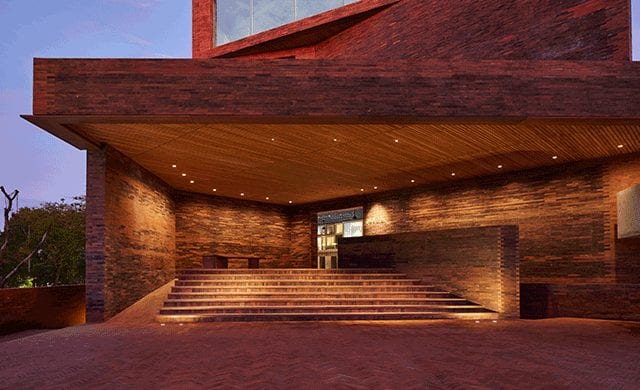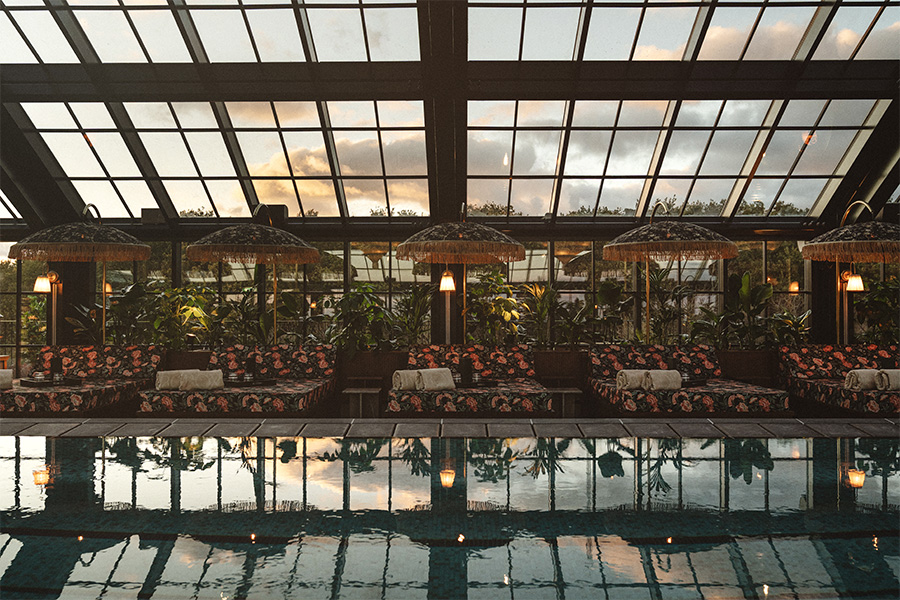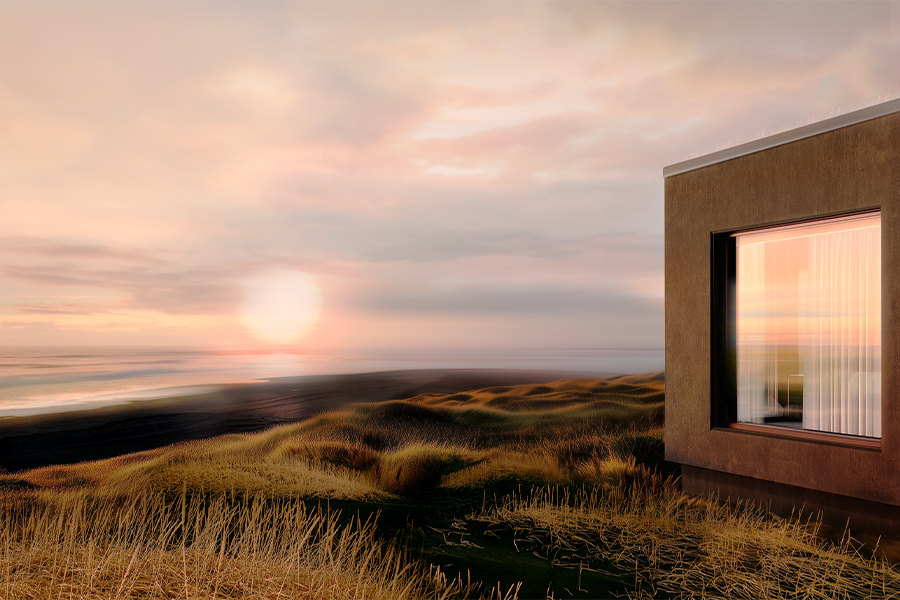Alongside the laidback beach and party vibe of Kuta, Bali, there are hill tribes with an almost religious devotion to arts and crafts. Indonesian entrepreneur Ronald Akili, founder of beachside bar Potato Head Beach Club and the Indonesian lifestyle brand of the same name, sought to marry the two cultures in the 58-room Katamama.
“The beach became the main element that set the anchor for Katamama’s design,” notes Jakarta-based Andra Matin, a longtime collaborator who headed up the architectural concept while Potato Head Family’s in-house team worked with Singapore-based Takenouchi Webb on the interiors. Covered in more than one million raw bricks intended to weather gracefully, the façade references traditional building materials found in Balinese temples and houses. The brick continues in the interior as wall cladding, and is joined by teak flooring and midcentury furnishings in suites. All guestrooms feature private outdoor spaces, with balconies enclosed with brick balustrades and larger suites boasting outdoor pools in tropically landscaped surrounds. “Jenki, a forgotten Indonesian style of furnishings, drove the guestroom pieces, along with the personal collection of Akili,” adds Ade Herkarisma, Potato Head’s architect and development team head, while nubby bed throws and rugs complete the cozy feel.
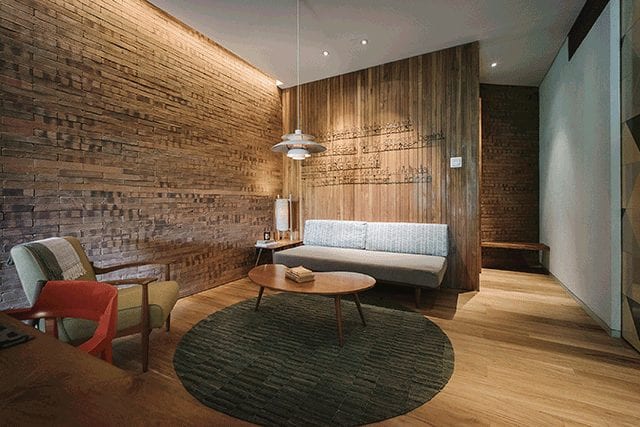
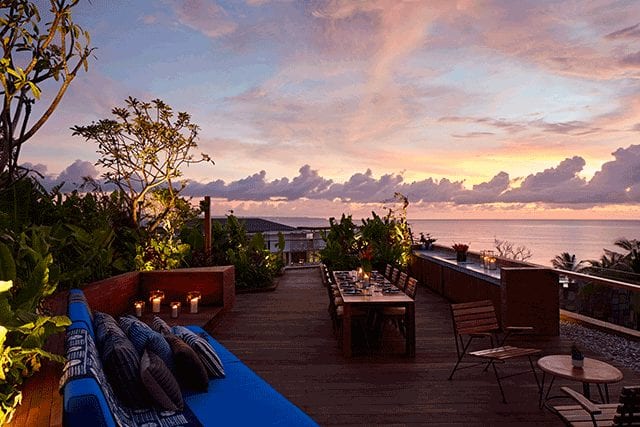
The all-day dining restaurant Akademi further emphasizes Katamama’s approach to craftsmanship by bringing back handmade Javanese tiles and terrazzo produced onsite, a traditional Balinese element. “We want people who stay at Katamama to experience a new approach—the classical mood of Bali and a sense of modernity at the same time,” adds Matin.

